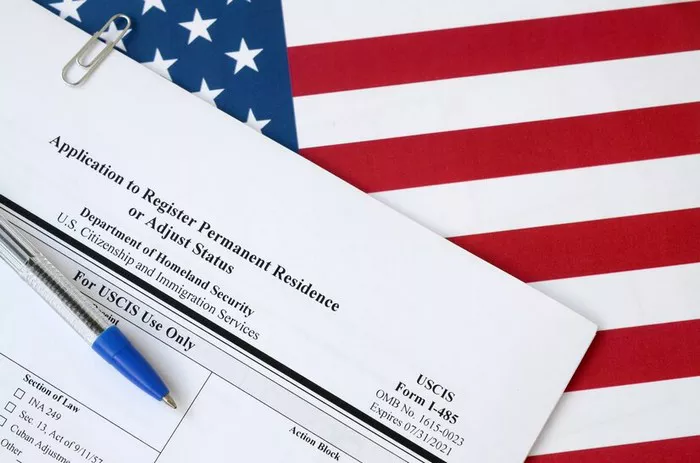The journey to obtaining a green card in the United States involves several crucial steps, one of which is the green card interview. This article explores how long it takes to get your green card after an interview and delves into the intricacies of the process.
The Importance of the Green Card Interview
The green card interview is a pivotal step in the application process for lawful permanent residence in the United States. It serves multiple purposes, including verifying the authenticity of the information provided in the application, assessing the applicant’s eligibility for a green card, and ensuring compliance with immigration laws.
Before the Interview: Preparation and Documentation
Prior to the interview, applicants are typically required to gather and submit various documents to support their green card application. These may include but are not limited to:
- Form I-485, Application to Register Permanent Residence or Adjust Status
- Form I-130, Petition for Alien Relative (if applicable)
- Form I-864, Affidavit of Support
- Passport and other travel documents
- Birth certificate
- Marriage certificate or evidence of relationship (if applicable)
- Medical examination records
- Employment authorization documents (if applicable)
- Criminal records (if applicable)
Ensuring that all required documentation is in order and submitted correctly can streamline the interview process and potentially reduce delays in obtaining a green card.
The Green Card Interview Process
The interview itself is typically conducted at a USCIS (U.S. Citizenship and Immigration Services) office. It is conducted by an immigration officer whose role is to assess the applicant’s eligibility for lawful permanent residence based on the information provided and the documentation submitted.
Scheduling the Interview: Once the initial application forms and supporting documents have been submitted and processed, applicants will receive a notice from USCIS scheduling their green card interview. The scheduling of the interview can vary depending on various factors, including the caseload at the USCIS office handling the application.
Interview Day: On the day of the interview, applicants are required to appear at the designated USCIS office at the specified time. It is essential to arrive on time and be prepared to answer questions truthfully and accurately.
Interview Process: During the interview, the immigration officer will review the applicant’s documents and ask questions to verify the information provided in the application. The nature of the questions may vary based on the type of green card being sought (family-based, employment-based, etc.) and individual circumstances.
Decision Making: At the conclusion of the interview, the officer may make a decision on the spot or the case may be continued for further review. Factors such as the completeness of the application, additional documentation required, or background checks can influence the timeline for decision-making.
Post-Interview: Waiting for a Decision
After the green card interview, applicants typically await a decision from USCIS regarding their application for lawful permanent residence. The timeline for receiving a decision can vary widely based on several factors:
Case Complexity: Complex cases involving issues such as prior immigration violations, criminal history, or incomplete documentation may take longer to adjudicate.
Background Checks: USCIS conducts background checks on applicants to verify information provided and ensure eligibility for a green card. Delays in these checks can impact the overall processing time.
Visa Bulletin and Priority Date: For applicants applying through family or employment-based categories that are subject to numerical limits (visa quotas), the availability of visas based on the Visa Bulletin can influence when a green card is issued.
SEE ALSO: HOW LONG AFTER BIOMETRICS TO GET A GREEN CARD?
Average Processing Times
While specific processing times can vary based on individual circumstances and USCIS workload, there are general estimates provided by USCIS and historical data that can give applicants a rough idea of what to expect:
Immediate Decision: In some cases, particularly straightforward applications with all required documentation in order, USCIS may issue a decision on the day of the interview or shortly thereafter.
Within a Few Weeks: For many applicants, especially those with uncomplicated cases, receiving a decision within a few weeks to a couple of months after the interview is typical.
Longer Wait Times: Cases that require additional administrative processing, further documentation, or background checks may experience longer wait times. These can range from several months to over a year in some instances.
Factors Influencing Processing Times
Several factors can influence the overall processing time for a green card after the interview:
Case Backlogs: USCIS workload and caseload at the specific USCIS office handling the application can impact processing times.
RFEs and Additional Evidence: Requests for Further Evidence (RFEs) or the need for additional documentation can extend the processing time as applicants gather and submit required information.
Administrative Processing: Cases that require additional administrative processing due to complex issues or security concerns may experience delays beyond standard processing times.
What to Do After the Interview
After the green card interview, applicants should monitor their case status online via the USCIS website using the receipt number provided. It is important to promptly respond to any requests for additional information or documentation (RFEs) to avoid delays in processing.
Conclusion
Obtaining a green card through adjustment of status or consular processing is a significant milestone for individuals seeking lawful permanent residence in the United States. While the green card interview is a critical step in this process, the timeline for receiving a green card after the interview can vary widely based on individual circumstances and procedural factors. Understanding the process, preparing thoroughly, and staying informed about case status updates can help applicants navigate the path to obtaining their green card effectively.


